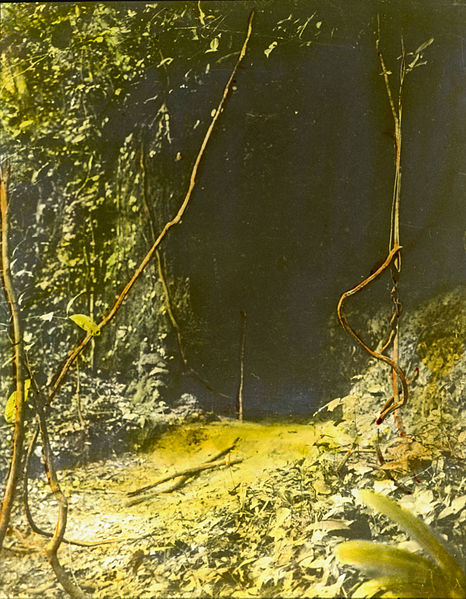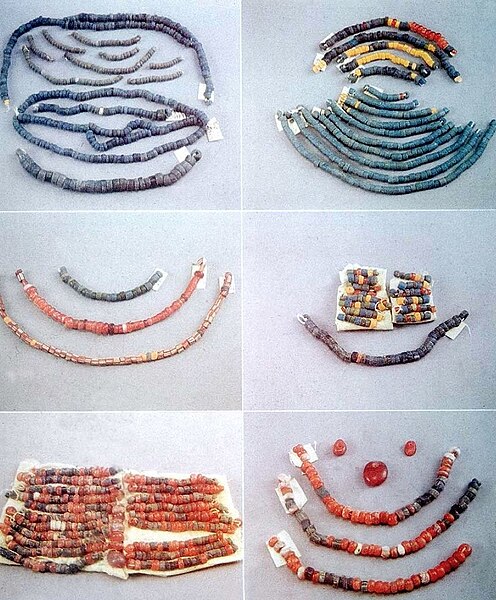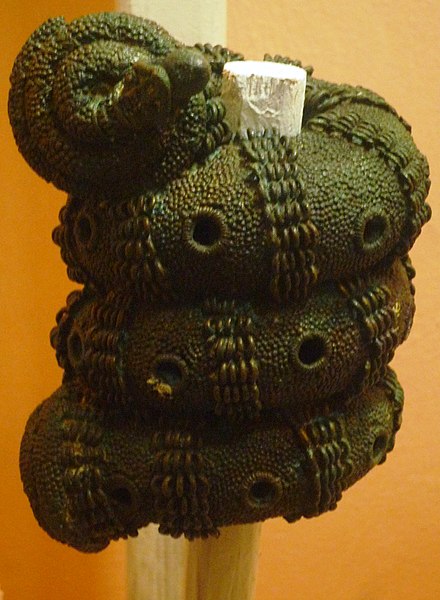The Aro Confederacy (1640–1902) was a political union orchestrated by the Aro people, an Igbo subgroup, centered in Arochukwu in present-day southeastern Nigeria. The Aro Confederacy kingdom was founded after the beginning of the Aro-Ibibio Wars. Their influence and presence was all over Eastern Nigeria, lower Middle Belt, and parts of present-day Cameroon and Equatorial Guinea during the 18th and 19th centuries. The Arochukwu Kingdom was an economic, political, and an oracular center as it was home of the Ibini Ukpabi oracle, High Priests, the Aro King Eze Aro, and central council (Okpankpo). The Aro Confederacy was a powerful and influential political and economic alliance of various Igbo-speaking communities in southeastern Nigeria. It emerged during the 17th century and played a significant role in the region until the late 19th century.
Remains of Long JuJu of Arochukwu, Late 19th Century.
Pre-Colonial Igbo trading routes.
The Igbo people are an ethnic group in Nigeria. They are primarily found in Abia, Anambra, Ebonyi, Enugu, and Imo States. A sizable Igbo population is also found in Delta and Rivers States. Igbo is also considered a very minority tribe in states such as Benue, Kogi, Akwa Ibom and Edo. Ethnic Igbo populations are found in Cameroon, Gabon, and Equatorial Guinea, as migrants as well as outside Africa. There has been much speculation about the origins of the Igbo people, which are largely unknown. Geographically, the Igbo homeland is divided into two unequal sections by the Niger River—an eastern and a western section. The Igbo people are one of the largest ethnic groups in Africa.
Igbo family in traditional attire
Glass beads from Igbo-Ukwu
An Igbo man with facial scarifications, known as ichi, early 20th century
Bronze ornamental staff head, 9th century, Igbo-Ukwu






